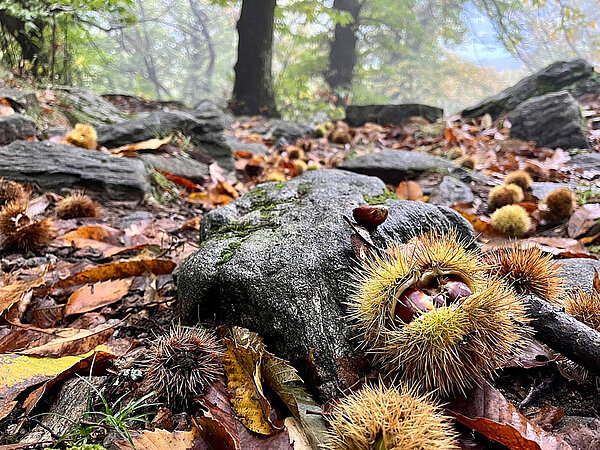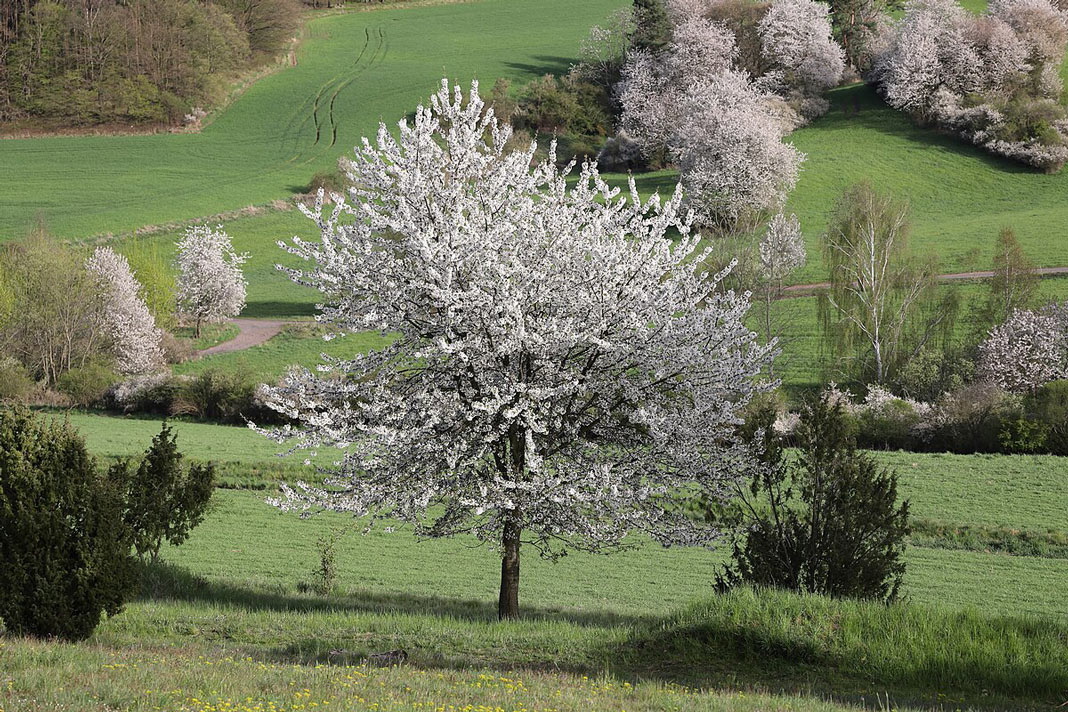In an effort to secure the future of our forests, researchers at the University of Copenhagen are collecting seeds from native tree species to study their resilience to climate change. Led by Dr Jon Kehlet Hansen, the team's research contributes to the forefront of forest genetics and climate change adaptation.
As part of their work with OptFORESTS, they are collecting seeds from wild cherry (Prunus avium) and sessile oak (Quercus petraea) in Nordic core populations, aiming to gain invaluable insights into the adaptive potential of these species. Hansen elaborates, "The wild cherry seeds were collected from 20 open-pollinated trees in an isolated breeding seed orchard." This orchard, originating from trees sampled in northern Jutland, Denmark, serves as a unique genetic repository near the edge of the species' natural distribution.
In a similar effort, the team gathered acorns from 20 open-pollinated sessile oak trees, alongside leaf samples for genotyping. This step ensures the purity of the seed trees and avoids hybridisation with pedunculate oak (Quercus robur). "The most important part of this work," Hansen emphasises, "was to keep the seeds separated into families and to ensure they were vital." These meticulous efforts highlight the team's dedication to preserving the genetic integrity and vitality of these tree species.
Expanding research horizons: testing tree species for climate resilience in Denmark
Hansen's work extends beyond seed collection to encompass a broad range of species, including sycamore, European beech, black alder, and common ash, as well as exotic conifers like coastal Douglas fir and Sitka spruce. Recently, the team has also begun testing different provenances of chestnut (Castanea sativa) and walnut (Juglans regia). Denmark's temperate climate, characterised by mild, humid winters and significant growing season precipitation, presents both challenges and opportunities for this research. "Climate change will likely increase winter precipitation and temperature," Hansen notes, "but also raise the risk of summer droughts."
To address these challenges, Hansen's team uses dendroecology to assess genetic variation and adaptive potential in resistance and resilience to drought and flooding. The provenances from which seeds are collected are tested in existing field trials, with results informing new trials planned under the OptFORESTS framework. This comprehensive approach aims to understand how different species and provenances respond to climate change, providing scientific guidance for assisted migration.
"The seeds will be used for planned common garden field trials," Hansen explains. These trials, located across various climates, will help scientists understand species' responses to climate change, informing recommendations for species and provenance selection. "It is particularly interesting to test the species and provenances under different climates," Hansen adds, "to see their response in survival, health, and growth to climate extremes."

The hidden value of seed collection
While Hansen's team did not conduct germination tests themselves, professional seed dealers ensured the seeds' viability. Reflecting on recent observations, Hansen mentions an exceptionally high seed set in oak trees in Denmark in 2023, though he lacks data to comment on climate change's impact on seeds or germination rates directly. Climate change is undoubtedly influencing seed collection, affecting collection seasons, seed quality, and the quantity that can be collected.
While some species may be more affected than others, the full extent of these changes requires further study. Hansen acknowledges, "I am not the right person to ask about this and do not have access to data to say much about it."
The value of this accurate work, often going unnoticed, is immense for forest management. By gathering seeds for common garden field trials, Hansen and his team aim to provide early warnings and critical insights for forest managers and owners. This research is a vital step in ensuring resilient forests capable of withstanding the challenges of a changing climate.
